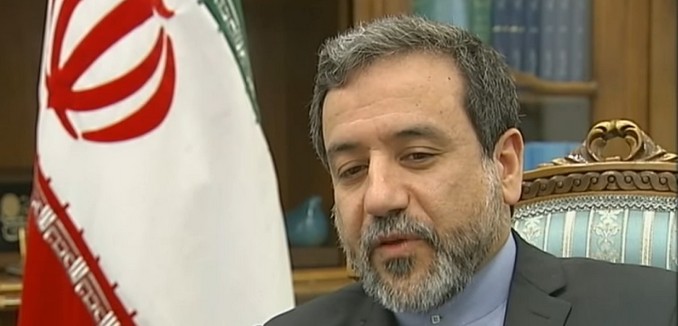Abbas Araghchi, Iran’s deputy foreign minister, warned that if the International Atomic Energy Agency (IAEA) doesn’t close its file of past Iranian nuclear violations, the Islamic Republic will stop complying with the terms of the nuclear agreement it reached with the P5+1 powers, Iran’s semi-official PressTV news service reported on Thursday.
Seyyed Abbas Araqchi said on Wednesday that the IAEA’s Director General Yukiya Amano has decided to release a report on the Iranian nuclear program on December 1, and the Agency’s Board of Governors will review the report and make a final decision in a meeting on December 15.
Araqchi said the report by Amano should result in the closure of the PMD issue.
“In case Yukiya Amano or the Board of Governors presents their report in such a way that it does not meet the stipulated commitments, the Islamic Republic of Iran will also stop [the implementation of] the JCPOA,” he said, in reference to the Joint Comprehensive Plan of Action, the agreement reached between Iran and the P5+1.
The IAEA has been tasked with the monitoring and verification of technical issues under the JCPOA.
Araghchi is one of several senior Iranian officials to present such an ultimatum recently. PressTV also reported on Thursday that Majid Takht-e Ravanchi, deputy foreign minister for European and American affairs, said, “everything related to PMD will be finished by December 1 … and then everything will be finished by the Board of Governors of the IAEA, so that the whole file related to PMD will be closed.”
Ravanchi’s statement echoed that of Reza Najafi, Iran’s ambassador to the IAEA, who claimed last week that, “according to the Article 14 of the JCPOA, the members of the P5+1 are committed to submitting a resolution to [the IAEA] Board of Governors’ ‘15 December’ meeting, whose aim is closing the issue.”
However, the nuclear deal requires Iran to satisfy all outstanding questions about its past nuclear activities, including the possible military dimensions (PMD) of its program, before the IAEA certifies its compliance. Specifically, the agreement (.pdf) says:
Iran will fully implement the “Roadmap for Clarification of Past and Present Outstanding Issues” agreed with the IAEA, containing arrangements to address past and present issues of concern relating to its nuclear programme as raised in the annex to the IAEA report of 8 November 2011 (GOV/2011/65). Full implementation of activities undertaken under the Roadmap by Iran will be completed by 15 October 2015, and subsequently the Director General will provide by 15 December 2015 the final assessment on the resolution of all past and present outstanding issues to the Board of Governors, and the E3+3, in their capacity as members of the Board of Governors, will submit a resolution to the Board of Governors for taking necessary action, with a view to closing the issue, without prejudice to the competence of the Board of Governors.
December 15 marks Implementation Day, which is the latest date for Iran and the P5+1 nations to begin undertaking the steps outlined in the nuclear agreement. Iran is required to start reducing its stockpile of enriched uranium and redesigning its heavy water reactor at Arak, while the United States and European Union are supposed to begin lifting nuclear-related sanctions against Iran. If the IAEA determines that Iran answered all of the questions surrounding its illicit nuclear program, United Nations Security Council Resolution 2231 will also come into force and cancel previous Security Council resolutions and sanctions imposed on the regime for its failure to abide by the Nuclear Non-Proliferation Treaty.
A report issued by the IAEA last week cast doubt on the effectiveness of the nuclear deal’s verification mechanisms. In an analysis of the IAEA report, the Institute for Science and International Security observed that the procedure for sample-taking from the suspected nuclear site at Iran’s Parchin military facility “raises troubling precedents for both the IAEA’s investigation into Iran’s past work on nuclear weapons and the verifiability of the long term nuclear deal.”
Understanding the full scope of Tehran’s nuclear program is essential to determining its compliance with the nuclear deal. “PMD-related transparency is seen as not just another issue – say, one that Iran could refuse to trade away by making concessions in other areas – but as a prerequisite to verifying Iranian compliance across all issues,” wrote Omri Ceren, The Israel Project’s managing director for press and strategy, while explaining the necessity of verifying the extent of Iran’s past nuclear work. The Israel Project publishes The Tower.
[Photo: Channel 4 News / YouTube ]




